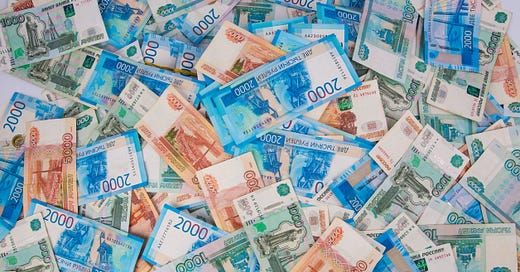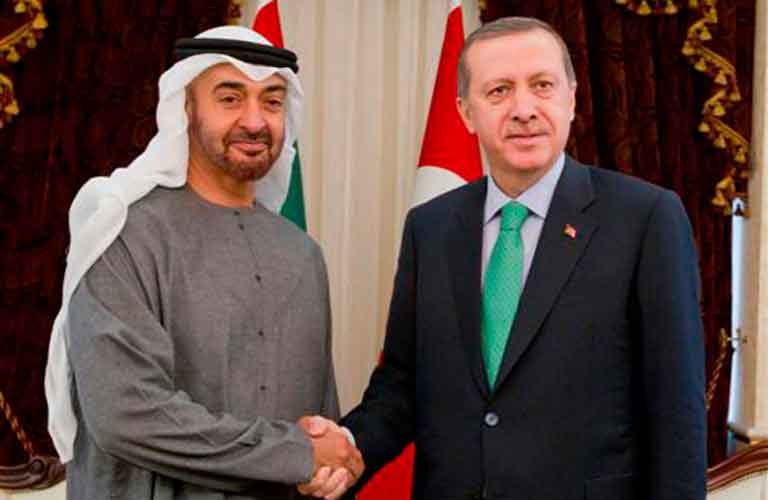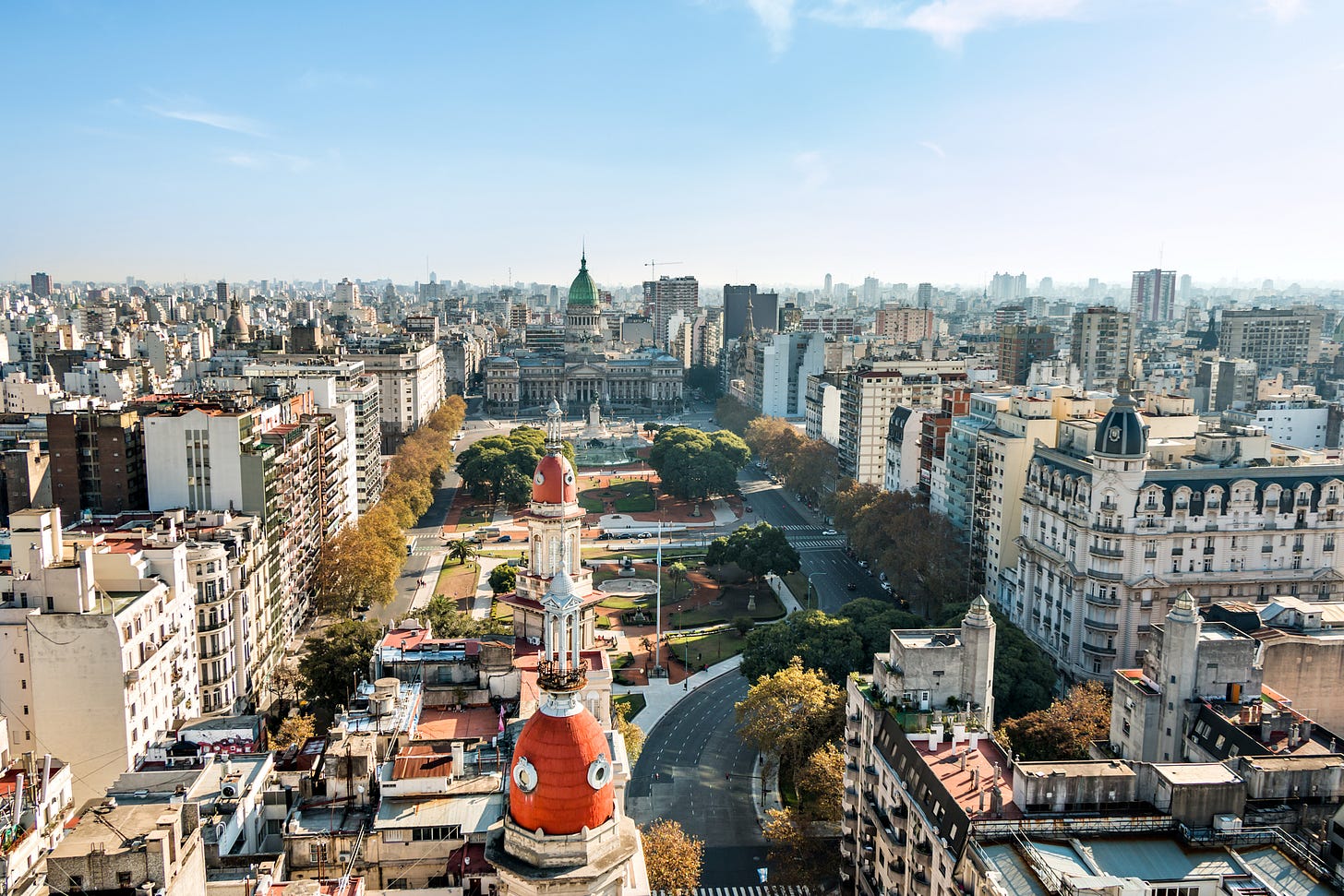Emerging Markets Daily - January 13
Russia Rouble Drops Sharply, Singapore to Welcome First SPACs, UAE 'Betting' on Turkey, Africa Macro: Weak Recovery, Lat-Am Macro: Slowing Recovery
The Top 5 Stories Shaping Emerging Markets from Global Media - January 13
Russian Rouble Falls Sharply Amid Ukraine Stand-Off With West
Reuters
“The Russian rouble fell sharply on Thursday and government bonds fell to more than a three-year low amid growing geopolitical concerns about Moscow’s standoff with the West.”
“The rouble dropped after Russian Deputy Foreign Minister Sergei Ryabkov said Washington’s rejection of Moscow’s key security demands was leading talks into a dead end. Russian military specialists were giving President Vladimir Putin options in case the situation around Ukraine worsened, he said.”
“Russia said its talks with the West had so far failed to bridge fundamental differences over the Ukraine crisis and Moscow’s demands that NATO pull back from central and eastern Europe.”
“The rouble has been under pressure since October, as Western countries expressed concerns about Russia’s military build-up near Ukraine. Moscow has said it can move its army within its own territory as it deems necessary.”
“The Russian finance ministry also added to the pressure on the rouble by increasing state purchases of foreign currency for the state coffers in the month ahead. The finance ministry’s increased FX purchases will limit the room for the rouble recovery, and the Russian currency is expected to firm only to 74 against the dollar by the end of the month, Sinara Investment Bank said in a note.” Reuters reports.
Singapore Set to List First SPACs, Beating Out Rival Hong Kong
Nikkei Asia
“The Singapore stock exchange is poised to list its first special purpose acquisition company as early as next week, which could put it ahead of rival Hong Kong in welcoming the popular new form of fundraising.”
“Two sponsor companies on Thursday announced they had filed prospectuses for initial public offerings of their SPACs, the first such filings in the city. The financial hub is keen to follow in the footsteps of the U.S., which has seen a flood of SPAC listings during the course of the COVID-19 pandemic.”
“Hong Kong's stock exchange operator, by contrast, only opened the door to SPAC listings at the start of this year, a little later than its Singaporean counterpart, which launched a framework for the vehicle months ago.”
“A SPAC, also known as a ‘blank check’ company, is a shell corporation whose sponsor, or promoter, raises capital via a stock market listing. It then acquires or merges with a functioning company, which gets put on a kind of fast track to going public.”
“Venture capital firm Vertex Venture Holdings, which is backed by Singapore state investor Temasek, on Thursday said a prospectus for its SPAC, named Vertex Technology Acquisition Corp., was registered with the Monetary Authority of Singapore, the city-state's financial regulator and central bank.” Nikkei Asia reports.
Geo-Economics: UAE “Betting on Turkey” as Political Ties Warm
Bloomberg
“The United Arab Emirates is looking to double or triple its trade volume with Turkey, capitalizing on its logistical ties with the rest of the world, in the latest sign of warming ties between the erstwhile rivals.”
“The UAE is ‘betting on Turkey as a country which is going to open up for us new markets through their logistics and through their supply chain,’ Thani Al Zeyoudi, the minister of state for foreign trade, said in an interview with Bloomberg Television.”
“The UAE is looking to benefit from Turkey’s huge investments in the industrial sector, its skilled labor and existing logistical network, especially with Africa, Al Zeyoudi said. The government is also putting the finishing touches on trade agreements with India and Israel and expects a deal with the country to be unveiled in the next couple of months.”
“The Gulf oil exporter has been pushing to cement its position as a global hub for business and finance, particularly as it faces growing regional competition from regional heavyweight Saudi Arabia. Last year, the UAE announced plans to deepen its trade ties in fast-growing economies in Asia and Africa, and draw $150 billion in foreign investment.”
“The UAE also outlined plans in November to launch a $10 billion fund to support investments in Turkey in one of the highest-level visits in years between the old Middle East foes.” Bloomberg reports.
Macro: Africa Faces Weak 2022 Rebound
African Business
“When the pandemic hit in 2020, Africa entered one of the most torrid recessions in half a century, its combined GDP contracting by 2.1%. The epic contraction was largely driven by African governments implementing strict lockdowns amid fears that Covid-19 would overrun fragile health services across the continent.”
“2021 was a different story. Last year, sub-Saharan Africa grew by a modest 3.7% according to the IMF, driven by a partial resumption of tourism, a rebound in commodity prices and the rollback of pandemic-induced restrictions. However, the outlook for 2022 looks barely unchanged as the Fund predicts that sub-Saharan Africa’s growth will only increase by 0.1% to 3.8%.”
“Firstly, the global lender says that Africa will continue to face Covid-19 related problems, compounded by a vaccination rate that lags well behind most other regions. In the absence of vaccines, the emergence of deadly and more transmissible new variants threatens to make Africa a global outlier on the road to recovery.” Tom Collins reports.
Macro: Latin America Rebound Growth to Slow in 2022-3
Merco Press
“Growth in Latin America and the Caribbean region (LAC) rebounded to an estimated 6.7% in 2021, driven by favorable external conditions and pandemic-related developments, according to the World Bank's Global Economic Prospects.”
“Region-wide new COVID-19 cases dropped sharply in the second half of the year, before surging in late December, even as the vaccination rollout progressed. Strong demand in key export destinations (the United States and China), high commodity prices, and continued high remittances to Central American and Caribbean countries were also supportive of growth in 2021.”
“Inflation has risen across the region, exceeding central banks' targets in most cases. The increase is attributed to firming demand associated with economic reopening, rising food and energy prices, weather-related electricity production disruptions, and, in some countries, currency depreciation and large increases in money supply.”
“Several countries—including Brazil, Chile, and Paraguay—are suffering their worst droughts in decades, requiring a switch to more costly fossil fuels to produce electricity typically generated by hydropower.”
“Regional growth is projected to soften, to 2.6 percent in 2022 and 2.7 percent in 2023, as fiscal and monetary policy is tightened, improvements in labor market conditions continue to be sluggish, and external conditions become less supportive.”
“The recovery to pre-pandemic levels of GDP will be uneven across the region, and prolonged in some countries. The projections through 2023 imply that on a GDP-weighted basis, LAC will lose ground in per capita income relative not only to advanced economies, but also to the East Asia and Pacific region and the Europe and Central Asia region.”
”Brazil’s economy is projected to slow to 1.4 percent in 2022—owing to weak investor sentiment, erosion of purchasing power by high inflation, macroeconomic policy tightening, slowing demand from China, and falling iron ore prices—before rebounding to 2.7 percent in 2023.”
“Mexico's economy is forecast to soften to 3 percent in 2022 and 2.2 percent in 2023. Supply chain bottlenecks are expected to linger into the first half of 2022, while external demand will be limited by slowing growth in the United States and macroeconomic policy is tightened.” Merco Press reports.
“You were born with wings, why prefer to crawl through life?”
― Rumi





